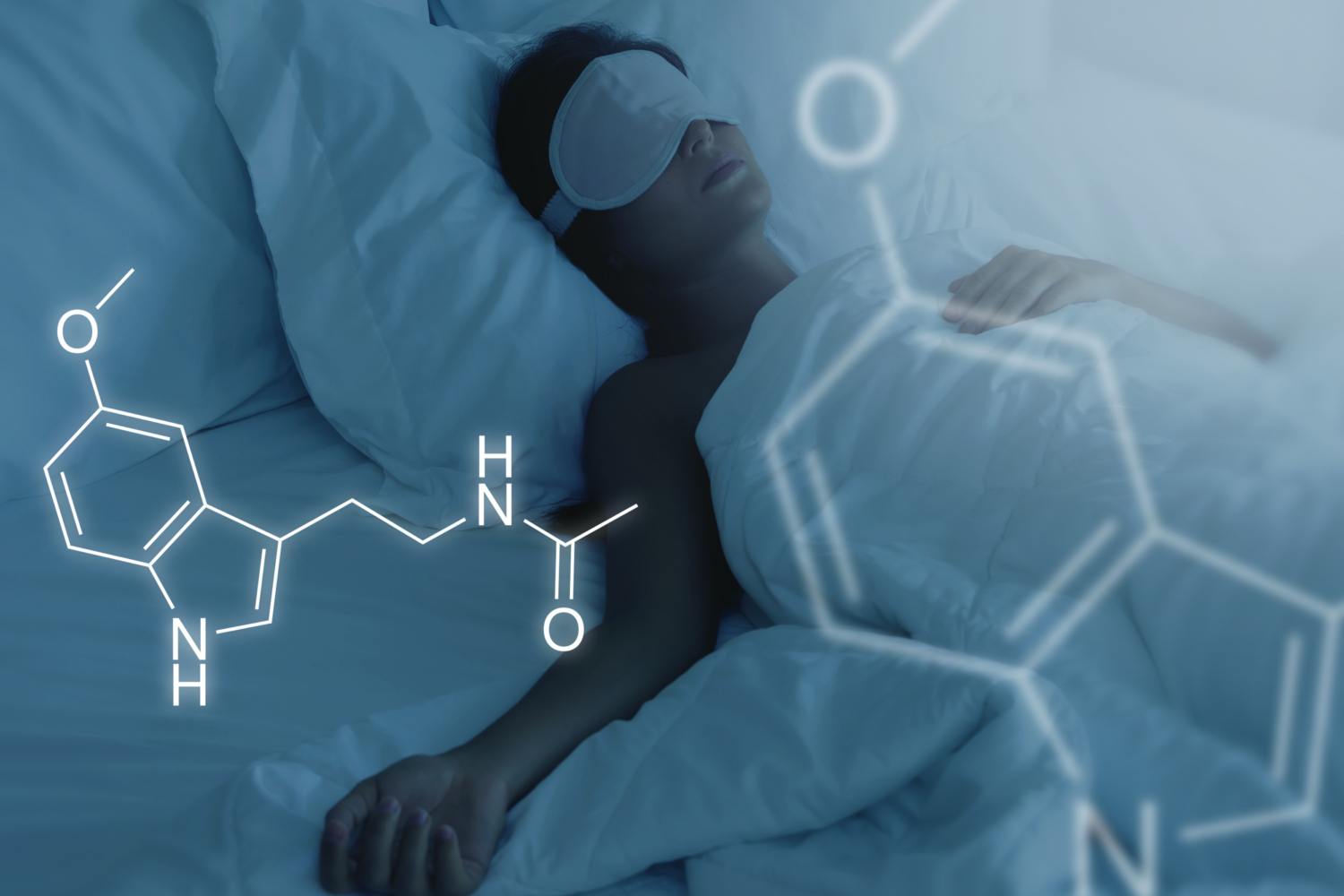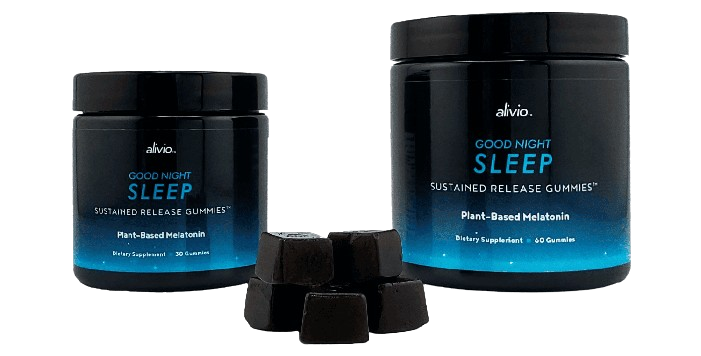
Melatonin: Usage, Side Effects, and Safety
Melatonin, a hormone naturally produced by the brain, plays a pivotal role in regulating our sleep-wake cycle.
However, with the rise of sleep disorders and the quest for better sleep, synthetic melatonin has found its way into many households.
As a dietary supplement, melatonin is commonly used to treat conditions such as insomnia and jet lag. Yet, its usage raises questions about safety, potential side effects, and proper dosage.
This article aims to provide an in-depth look at melatonin, its usage, and its safety profile. It will shed light on the potential side effects and interactions with other medications.
Whether you are considering using melatonin, a healthcare professional advising patients, or simply curious about this popular supplement, this article will offer valuable insights.
Let’s delve into the world of melatonin, its benefits, and precautions to ensure safe and effective use.
Understanding Melatonin and Its Role in Sleep
Melatonin is a hormone that our bodies naturally produce in the pineal gland, a small endocrine gland in the brain. Its production is influenced by the light-dark cycle of our environment, with levels peaking at night and dropping during the day.
This hormone plays a crucial role in regulating our circadian rhythm, also known as the sleep-wake cycle. It signals to our bodies when it’s time to sleep, making us feel drowsy as night falls.
Here are some key points about melatonin’s role in sleep:
- Melatonin is not a sedative. It simply signals the body that it’s time to sleep.
- Exposure to light at night, such as from electronic devices, can suppress natural melatonin production.
- Melatonin levels naturally decline with age, which may affect sleep patterns in older adults.
- Overuse of melatonin supplements can disrupt the natural sleep-wake cycle.
Understanding the role of melatonin in sleep is the first step towards safe and effective usage. In the following sections, we will explore how to use melatonin supplements, their potential side effects, and safety considerations.
This study confirms that melatonin production is indeed influenced by the light-dark cycle. It is primarily synthesized by the pineal gland during the night in response to darkness. The study also discusses the hormone’s role in regulating circadian rhythms, emphasizing that melatonin is not a sedative but rather signals the body that it is time to prepare for sleep. It notes that exposure to light, especially at night, can suppress the natural production of melatonin. Furthermore, the study indicates that melatonin levels typically decline with age, which can affect sleep patterns in older adults.
https://academic.oup.com/edrv/article/39/6/990/5094958
Melatonin Usage: Indications and Dosage
Melatonin supplements are commonly used to treat various sleep disorders. These include insomnia, jet lag, and circadian rhythm disorders such as delayed sleep phase syndrome. They are also used to help shift workers adjust their sleep schedules.
The timing of melatonin administration is critical for its effectiveness. It is generally recommended to take melatonin 30 to 60 minutes before bedtime. However, the best time can vary depending on the individual’s sleep schedule and the specific sleep disorder being treated.
Here are some key points about melatonin usage:
- Melatonin can help regulate the circadian rhythm in blind individuals.
- Some studies suggest melatonin has antioxidant properties and may have a role in immune function.
- Melatonin is sometimes used to treat headaches, especially cluster headaches.
- There is ongoing research into melatonin’s potential anti-cancer properties.
It’s important to note that melatonin is not a one-size-fits-all solution. Its effectiveness can vary greatly from person to person.
Melatonin supplements are widely used for managing various sleep issues, including insomnia, jet lag, and circadian rhythm disorders such as delayed sleep phase syndrome. It’s important to take melatonin about 30 to 60 minutes before bedtime to optimize its effectiveness. However, the optimal timing can vary depending on the individual’s specific sleep disorder and schedule (Sleep Foundation) (nhs.uk).
Here are a few detailed points about melatonin usage:
- Dosage: The typical dosage for adults ranges from 1 to 5 milligrams, though starting with a lower dose is generally recommended to see how it affects you before potentially increasing the dose. For children, the dosage is adjusted according to age and should always be managed under medical supervision due to the hormonal nature of melatonin (Sleep Foundation) (nhs.uk).
- Special Considerations: Melatonin can also be beneficial for blind individuals to help regulate their circadian rhythm. It has antioxidant properties and potential roles in immune function, and it is being researched for its possible anti-cancer effects. Additionally, melatonin is sometimes used to manage headaches, particularly cluster headaches (Sleep Foundation) (Cleveland Clinic).
- Safety and Interactions: Melatonin should be used with caution as it can interact with various substances including caffeine, alcohol, and certain medications like fluvoxamine, ramelteon, and tasimelteon. It’s also important to avoid operating machinery or driving after taking melatonin as it can cause drowsiness (Cleveland Clinic).
- Regulation and Quality: Melatonin is not regulated like prescription medications, which means the purity and dosage can vary between products. Looking for products that include a USP (United States Pharmacopeia) mark can help ensure quality and safety (Cleveland Clinic).
When to Take Melatonin
As mentioned earlier, the timing of melatonin administration is crucial. For most people, the best time to take melatonin is 30 to 60 minutes before bedtime. This allows the supplement time to start working before you’re ready to sleep.
However, if you’re using melatonin to adjust to a new sleep schedule, such as after traveling to a different time zone or switching to a night shift, the timing may be different. In such cases, it’s best to consult with a healthcare provider for personalized advice.
Recommended Dosages
The recommended dosage of melatonin can vary depending on several factors. These include the individual’s age, the specific sleep disorder being treated, and the person’s overall health status.
Here are some general guidelines for melatonin dosages:
- For adults, the typical dosage ranges from 0.5 mg to 5 mg.
- For children and adolescents, the dosage should be determined by a healthcare provider.
- It’s advisable to start with the lowest possible dose to assess tolerance.
Remember, these are general guidelines. Always consult with a healthcare provider before starting melatonin or any other dietary supplement.
The Safety Profile of Melatonin
Melatonin is generally considered safe for short-term use. Most people can take it without experiencing serious side effects. However, like all supplements, it’s not without risks. Some people may experience mild side effects such as drowsiness, headache, dizziness, and nausea.
It’s important to note that melatonin supplements are not regulated by the FDA in the same way as prescription medications. This means that the quality and content of melatonin supplements can vary between brands. Therefore, it’s crucial to purchase melatonin from reputable sources.
Moreover, melatonin can interact with various medications, including blood thinners and diabetes drugs. Therefore, it’s important to consult with a healthcare provider before starting melatonin, especially if you’re taking other medications.
Short-Term vs. Long-Term Use
While short-term use of melatonin is generally considered safe, the safety of long-term use is not as well-established. Some studies suggest that long-term use of melatonin can disrupt the natural sleep-wake cycle. This can lead to dependency and rebound insomnia when the supplement is discontinued.
Moreover, overuse of melatonin can potentially cause hormonal imbalances. This is particularly a concern for children and adolescents, whose bodies are still developing. Therefore, long-term use of melatonin in these populations should be under strict medical supervision.
In conclusion, while melatonin can be a helpful tool for managing certain sleep disorders, it should be used with caution. Always consult with a healthcare provider before starting a regimen of melatonin, especially for long-term use.
Potential Side Effects of Melatonin
Melatonin is generally well-tolerated, but like all supplements, it can cause side effects in some individuals. These side effects are usually mild and often subside as the body adjusts to the supplement. Common side effects include drowsiness, headache, dizziness, and nausea. Less frequently, individuals might experience mood swings, irritability, confusion, or digestive issues such as diarrhea or constipation (Mayo Clinic) (nhs.uk) (Drugs.com).
For most people, these side effects are temporary. However, it’s important to start with a low dose of melatonin to see how your body reacts. If side effects persist or worsen, it’s crucial to consult a healthcare provider. Melatonin should be used cautiously, particularly by older adults or those taking other medications, due to potential interactions and increased risk of falls or other side effects (Verywell Health) (Drugs.com).
Additionally, melatonin can interact with several types of medications, including those that affect blood clotting, seizure prevention, and others that are processed by the liver. Therefore, discussing melatonin usage with a healthcare provider is essential to avoid potential interactions and ensure safe use (Mayo Clinic).
For more detailed information, you can visit these resources:
- Mayo Clinic on Melatonin Side Effects
- NHS on Melatonin Side Effects
- Drugs.com on Melatonin Side Effects
Common Side Effects
Common side effects of melatonin include:
- Drowsiness
- Headache
- Dizziness
- Nausea
- Mild anxiety
- Irritability
- Confusion
These side effects are usually mild and temporary. They often subside as the body adjusts to the supplement. However, if these side effects persist or worsen, it’s important to seek medical advice.
Serious Side Effects and Warnings
In rare cases, melatonin can cause more serious side effects. These can include severe allergic reactions, hallucinations, disorientation, or symptoms of depression. If you experience any of these side effects, stop taking melatonin immediately and seek medical attention.
Moreover, melatonin can interact with certain medications, including blood thinners, seizure medications, and diabetes drugs. Therefore, it’s crucial to consult with a healthcare provider before starting melatonin if you’re taking any of these medications.
Interactions with Other Medications
Melatonin can interact with various medications, potentially altering their effects. This is why it’s crucial to consult with a healthcare provider before starting melatonin, especially if you’re taking other medications.
Some of the medications that can interact with melatonin include:
- Blood thinners, such as warfarin
- Seizure medications, such as phenytoin and carbamazepine
- Diabetes drugs, such as insulin and metformin
- Immunosuppressants, such as cyclosporine
- Medications for high blood pressure
These interactions can lead to increased side effects or reduced effectiveness of the medications. For instance, melatonin can increase the risk of bleeding in individuals taking blood thinners. It can also affect blood sugar levels, potentially impacting the effectiveness of diabetes medications.
Therefore, it’s essential to discuss with your healthcare provider if you’re considering taking melatonin alongside these or any other medications. They can provide guidance on the safe use of melatonin and monitor for potential interactions.
Special Considerations for Different Populations
Melatonin’s safety and effectiveness can vary among different populations. Factors such as age, health status, and specific conditions can influence how individuals respond to melatonin.
For instance, children and adolescents may require lower doses and more careful monitoring due to their developing bodies. Older adults may have different sleep patterns and melatonin production levels, affecting their response to supplementation. Pregnant and breastfeeding women should generally avoid melatonin due to insufficient research on its safety during these periods.
Here are some special considerations for different populations:
- Children and Adolescents
- Older Adults
- Pregnant and Breastfeeding Women
Melatonin in Children and Adolescents
Melatonin is sometimes used in children and adolescents to manage sleep disorders. However, its use should be under strict medical supervision.
The safety and long-term effects of melatonin in this age group are not well-established. Moreover, melatonin’s impact on hormone levels should be considered, especially during adolescence when hormonal changes are significant.
Melatonin Use in Older Adults
Melatonin levels naturally decline with age, which may affect sleep patterns in older adults. Some may turn to melatonin supplements to improve sleep.
However, older adults should use melatonin cautiously. They are more likely to have medical conditions or take medications that can interact with melatonin. Therefore, it’s crucial to consult with a healthcare provider before starting melatonin in this age group.
Melatonin and Pregnancy
Melatonin is not recommended for pregnant or breastfeeding women. There is insufficient research on its safety during these periods.
While some studies suggest potential benefits of melatonin during pregnancy, such as antioxidant properties, the lack of conclusive evidence warrants caution. Pregnant and breastfeeding women should consult with their healthcare provider before considering melatonin.
Alternatives to Melatonin and Sleep Hygiene Tips
While melatonin can be a helpful tool for managing sleep disorders, it’s not the only solution. There are several natural sleep remedies and sleep hygiene practices that can also promote better sleep.
It’s important to remember that melatonin is not a one-size-fits-all solution. It may not work for everyone, and it should not be used as a substitute for good sleep hygiene practices.
Natural Sleep Remedies
There are several natural sleep remedies that can help promote better sleep. These include lifestyle changes, such as regular exercise and a healthy diet, as well as other natural supplements like valerian root and chamomile.
It’s important to consult with a healthcare provider before starting any new supplement or making significant lifestyle changes. They can provide personalized advice based on your individual needs and health status.
Apart from melatonin, several natural remedies can help promote better sleep:
- Valerian Root: This herb is known for its sedative properties and can help reduce the time it takes to fall asleep. Valerian root increases levels of gamma-aminobutyric acid (GABA) in the brain, which has a calming effect.
- Chamomile: Often consumed as tea, chamomile is effective in improving overall sleep quality and reducing symptoms of insomnia. It works as a mild tranquilizer, helping to induce sleep.
- Tart Cherry Juice: Contains small amounts of melatonin and tryptophan which can help boost your body’s melatonin production naturally, promoting better sleep.
- Magnesium: This mineral helps calm the nervous system and can be beneficial for sleep, especially in those who live with anxiety and stress.
- Tryptophan-rich foods: Foods like oats, dairy products, nuts, and seeds contain tryptophan, an amino acid that the body uses to produce serotonin, which in turn is converted into melatonin.
- Light exposure: Regulating light exposure is crucial; getting sunlight during the day and reducing blue light exposure from screens before bedtime can help maintain a healthy sleep-wake cycle.

Best nutritious food for healthy sleep. Concept of ingredients containing melatonin and tryptophan
Improving Sleep Hygiene
Improving sleep hygiene is a crucial part of managing sleep disorders and promoting better sleep. Sleep hygiene refers to habits and practices that are conducive to sleeping well on a regular basis.
Here are some tips for improving sleep hygiene:
- Maintain a consistent sleep schedule, even on weekends.
- Create a relaxing bedtime routine.
- Make your sleep environment comfortable and conducive to sleep.
- Limit exposure to screens before bedtime.
- Avoid caffeine and heavy meals close to bedtime.
- Engage in regular physical activity, but not too close to bedtime.
These strategies are supported by sleep research and can be effective in improving sleep quality without the need for supplements like melatonin (Healthy Sleep) (Univera) (Sleep Foundation) (https://www.artofliving.org/us-en).
Study Reveals Significant Inconsistencies in Melatonin Supplements
This study examined the melatonin content in 30 commercial supplements, revealing significant inconsistencies. It found melatonin levels in these products deviated widely from their labels, ranging from -83% to +478% of stated amounts. Melatonin content did not meet label within a 10% margin of the label claim in more than 71% of supplements and an additional 26% were found to contain serotonin. Serotonin, a controlled substance not typically expected in these products, was detected in several samples. This variability and the unexpected presence of serotonin highlight the need for stricter quality control in the production of melatonin supplements to ensure safety and efficacy. The findings underscore the importance of reliable labeling and product content for consumers and healthcare providers.
Citation: Erland LA, Saxena PK. Melatonin natural health products and supplements: presence of serotonin and significant variability of melatonin content. J Clin Sleep Med. 2017;13(2):275–281.
For more details, you can access the full study here.

White pill of dietary biologically active supplements and glass of water for daily tablets intake on blue background
What should I use?
Good Night Sleep Gummies use nanotechnology to achieve extremely high standards of efficacy and consistency.
Good Night Sleep – a plant-based melatonin is an optimal sleep aid through Chaé’s Sustained Release Technology which provides micro-sized particles for greater performance. You need less quantity of phyto melatonin to yield the best results in good sleep. 99% of all Melatonin products are synthetic and typically overdose a person, creating fogginess upon waking. With the harmonious blend of nature’s gentleness and scientific innovation, they are designed to cradle you into a peaceful slumber. Crafted for those who seek a restful night without compromising their ethical and health-conscious values, our gummies are a testament to purity, efficacy, and sustainability.
- Plant-Based Melatonin
- Non-GMO
- Provides Immunity Support
- Delicious Berry Flavor
- No Color Added
- Honey Sweetened
- Go to Sleep, Stay Asleep
- Sustained Release
Conclusion and Key Takeaways
In conclusion, melatonin is a widely used supplement that can help regulate the sleep-wake cycle and treat sleep disorders. However, like any supplement, it should be used with caution and under the guidance of a healthcare provider.
It’s important to remember that while melatonin can be beneficial, it’s not a cure-all solution for sleep issues. Good sleep hygiene practices and lifestyle changes should be the foundation of any sleep improvement plan. Always consult with a healthcare provider before starting or changing any medication or supplement regimen.
References and Further Reading
For more detailed information on melatonin and its effects on sleep, consider consulting reputable health websites, scientific journals, and healthcare providers. Always ensure that the information you read is up-to-date and based on sound scientific research.






